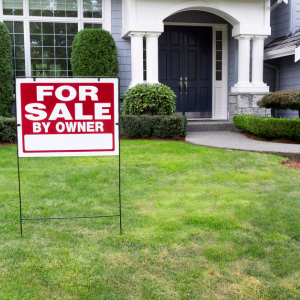
If you’re planning to sell your home without a realtor (FSBO), Nura Home Buyers can guide you through the process. We’ll help you price, market, and sell your Pennsylvania home with confidence and ease.
Introduction to Selling a Home by Owner in Pennsylvania
Many property owners in Pennsylvania are interested in selling their properties directly, which is also known as a sale by owner or FSBO (For Sale By Owner). This way, those who want to sell their homes can do it themselves, which could save them money on commission costs and offer them greater control over the process. But it also demands a detailed understanding of the state’s housing market, the legislation, and how to sell efficiently. In Pennsylvania’s competitive real estate market, it’s crucial to be well-prepared to attract potential buyers and achieve a successful sale as you go through the FSBO process.
Understanding the For Sale by Owner Process in Pennsylvania
If you want to sell your home for cash in Pennsylvania, you need to be strategic when going for the sale-by-owner option. Selling a house in Pennsylvania is a meticulous and strategic process. Every state has its own housing market, and you need to learn the ins and outs of Pennsylvania’s housing market. You need to identify what your potential buyers need in a house and what the current selling trends are in Pennsylvania’s housing market. Assess sales prices of houses in your neighborhood to set a selling price that is both appealing and profitable. You also need to look for local market data to estimate how long houses are staying on the market. This way, you will be mentally prepared for the selling process.
Also, promoting your property well is an important part of the FSBO process. Think about using both traditional and digital marketing methods to reach more people. Use online real estate listing sites that let homeowners list their own properties, and use social media to get the word out about your house. A well-written property listing with clear images and informative information will make potential buyers much more interested. To attract people who want to buy a house in Pennsylvania, focus on the property’s unique qualities, such as recent renovations or its strategic location.
Another important thing for an FSBO seller to know is what the law requires and what paperwork is needed. Homeowners in Pennsylvania must follow all of the state’s rules when selling property. This includes making a clear and full purchase agreement and making sure that the right disclosure documents are filled out. This openness builds confidence between the buyer and seller and also keeps the seller safe from legal problems that could come up.
If you take the time to learn about these duties and make a plan for selling your property, selling your property by owner in Pennsylvania can be both profitable and good for your wallet.
Legal Requirements for Selling a Pennsylvania Home

It is very important to know the laws in Pennsylvania when you want to sell your house. This means knowing the different parts of a purchase deal and what essential details you need to share with potential buyers. You can be sure that the sale goes easily and follows the law. This will keep you and anyone who buys from you out of trouble with the law. This is important in Pennsylvania’s competitive real estate market because it shows that you are a professional and builds trust.
Essential Disclosures for Home Sellers in Pennsylvania
One of the key elements of selling a home in Pennsylvania is meeting the legal requirement to provide certain disclosures to prospective buyers. This clarity allows both parties to approach the sales contract with a well-informed viewpoint, promoting a reliable transaction. In Pennsylvania, it is mandatory for home sellers to reveal any significant defects present in the property. This encompasses recognized concerns regarding the house’s structure, including the roof, foundation, and plumbing systems, which may influence the property’s value or appeal. Not revealing this information can result in legal consequences and may jeopardize the transaction.
Additionally, Pennsylvania law requires the disclosure of environmental hazards, including radon levels and the existence of lead-based paint, especially in residences constructed before 1978. These are essential points for purchasers who are worried about health hazards and potential future remediation expenses. The state offers a standardized document known as the Seller’s Property Disclosure Statement, which effectively assists home sellers in navigating the essential disclosures in detail. This document helps sellers meet their legal obligations thoroughly, streamlining the sales process.
Consulting a lawyer can be extremely beneficial when dealing with these disclosure requirements. An attorney can provide comprehensive guidance on accurately and promptly filling out the disclosure forms, making sure that all applicable state and local regulations are adhered to. Having a knowledgeable legal partner can safeguard sellers against potential disputes and offer reassurance as they proceed with the sale.
In a competitive real estate market such as Pennsylvania’s, being thorough with disclosures not only avoids potential disputes but also enhances your property’s appeal by highlighting a genuine and transparent selling approach.
Navigating the Purchase Agreement in Pennsylvania
The purchase agreement is the most important legal document in any property deal. For home sellers in Pennsylvania, knowing what it says is very important for a successful sale. This contract spells out the terms of the sale, including the price, any conditions that must be met, and the closing date. A clear and complete purchase agreement reduces the chances of conflict, which makes the deal stronger.
It’s very important to spell out all the terms clearly when writing a purchase agreement. This includes the agreed-upon sale price and any conditions that could make the contract invalid, such as getting financing or passing a structural examination. The agreement should also list any products that are included or not included in the sale. This could include things like appliances, fixtures, or buildings outside the house. Being clear about these things can help the closing process go more smoothly.
The purchase agreement also needs to list any contingencies that both the buyer and seller must meet, including lender approvals or appraisal standards. There should be a clear timetable for each contingency to make the deal go more smoothly and ensure that progress is made toward closing on time.
It is helpful to hire a lawyer to help you write and evaluate the purchase agreement. A lawyer can help you grasp the complicated parts of the paperwork and make sure your interests are well safeguarded. They can also aid with any talks about the terms of the deal, making sure that the final contract is fair and lawful.
In Pennsylvania’s busy real estate market, a well-written purchase agreement not only makes the sale go more smoothly but also protects both parties from unexpected legal problems, which makes the transaction a success.
Advantages and Disadvantages of Selling by Owner in Pennsylvania

There are both good and bad things about selling a house by owner in Pennsylvania. You can save a lot of money on commissions and have full control over the whole process, from listing to closing, if you sell the house yourself. But going the for-sale-by-owner (FSBO) path also comes with its own set of problems, such as having to know a lot about the housing market and the law. This part looks at the good and bad things about selling a house in Pennsylvania on your own, which will help you make a better decision.
Pros of Handling Your Own Sale in Pennsylvania
One of the best things about selling your own home in Pennsylvania is that you could save money, especially on the fees that real estate professionals normally charge. These costs can make up a big part of the sale price, so getting rid of them can help you make a lot more money when you sell your property.
You can also keep direct control over every step of the process when you sell your own home. When you work with a middleman, you can’t get this kind of personal investment. This feature helps you set your list price based on how you see the market in your area. It also lets you adjust your marketing approach fast when the market changes, which is particularly crucial in a real estate market that is always changing.
You may also sell your home in a style that is distinctive to you, which is another benefit. You probably know the most about the unique qualities of your home and neighborhood since you own it. This level of detail helps you write engaging descriptions and point out things that other people might miss, which will help you sell.
Also, selling by owner enables you to talk to possible buyers in a more personal and effective approach, which can help you make better deals and be clearer. This can help both sides sell things faster and in better conditions. Before you sell on your own, you need to know how the capital gains tax in Pennsylvania can affect your profits.
Also, selling your own home in Pennsylvania might make the process more personal and open. Talking to potential buyers directly will help you get a better sense of who they are and set up times for them to see the property that work for you. This direct interaction can help you and potential buyers trust each other and get along better, which will make it easier to negotiate and close the deal.
In Pennsylvania’s competitive housing market, where personal touches may greatly affect how appealing a home is and how much it might sell for, these perks might be especially appealing.
Cons and Challenges Faced by Owners in Pennsylvania
There are many benefits to selling a home on your own, but it can be hard for sellers who don’t know what they’re doing. One of the hardest parts of buying and selling real estate in Pennsylvania is that it takes a long time to learn how to do it. If homeowners want to sell their homes themselves, they need to understand how the local market works, how to set prices, and how buyers behave to make their homes stand out. It can take a long time and be hard to do.
Also, sellers may not know how much their home is worth without help, which could cause them to undervalue or overprice it, both of which could stall the sale. Another huge problem is that Pennsylvania has very convoluted regulations around selling property. Sellers need to carefully follow the laws in their state, like necessary disclosures and purchase agreements, to make sure that a transaction is real and can be enforced.
It’s simple to mess up these legal standards if you don’t have professional support, which could cause complications or litigation after the sale. It could be challenging to follow the rules of disclosure, especially if you don’t know exactly what you need to say to avoid getting in trouble.
Also, if you handle the sale yourself, you’ll have to do all the work that an expert would normally do. These responsibilities include advertising the property, arranging showings, and negotiating offers, as well as responding to purchasers’ questions and concerns. These chores can take a lot of time and be highly stressful, especially for people who have to do them along with other personal or job duties.
Also, FSBO sellers sometimes don’t have access to the big networks and marketing tools that professionals do. This could make it harder for the right buyers to find the property and keep it on the market longer. When you add these problems together, the FSBO process can be scary and tiring, which can make up for the money you save by not hiring a professional.
Selling your home FSBO can be tough. At Nura Home Buyers, we buy houses in Philadelphia and nearby areas for a quick, stress-free sale you can trust.
Preparing Your Home for Sale in Pennsylvania

Getting your Pennsylvania home ready to sell is a very important part of making sure the deal goes smoothly. It involves making a lot of smart preparations, like cleaning the house thoroughly, fixing anything that needs fixing, and staging the house to make it look better. In Pennsylvania’s competitive housing market, sellers can make their houses more appealing to buyers by focusing on these key points. A nice presentation and careful preparation not only get more people interested, but they might also raise the house’s market value, which sets the stage for a good real estate sale.
Staging and Presentation in Pennsylvania
Staging and presentation are very important for selling a home since they make it look like a great product that buyers will want. A well-staged home can catch the eye of potential buyers, which is important in Pennsylvania’s crowded real estate market.
The first thing you should do to stage a place well is to make it less personal. This means taking out personal things like family portraits and distinctive memorabilia that could make it hard for a buyer to picture the property as their own. Instead, think about using neutral decorations to highlight the best features of the property, such as big windows or a big floor plan.
Also, make sure the house is tidy and clear of clutter so that it feels pleasant and purchasers can picture themselves living there. Along with getting rid of clutter, arranging furniture in a smart way is quite important for staging to work. You may make rooms look more open and accessible by arranging furniture to improve the flow of the home. This will bring out the best qualities of the property.
Using strategic lighting may also make a big difference in the presentation. The perfect lighting will brighten the inside and make rooms look bigger and more lively. Modern window treatments can let in more natural light than heavy, old drapes, which can improve the overall feel of a room.
It’s also important to pay attention to curb appeal because the outside of the house is the first thing they see. Small changes like painting the front door, making sure the home number is easy to see, and updating the landscaping can provide a good first impression that lasts long beyond the showing.
Finally, listings with professionally taken photos can make a big difference in today’s real estate market, where online views can make or break a deal. High-quality photos show off the property at its best, showcasing its best features and getting potential buyers interested in coming to see it in person. Virtual tours are another way to make your listing stand out. They let buyers look at the house from afar, which is especially enticing in today’s tech-driven home searches.
Sellers in Pennsylvania can greatly increase their chances of a successful and lucrative property sale by using these staging and presentation tips. This will make the transition to new ownership go more smoothly.
Declutter, stage rooms, and make small repairs to prepare your home for sale. For more help, Contact Us at Nura Home Buyers.
Understanding Closing Paperwork and Sales Contracts
Understanding the complexities of closing paperwork and sales contracts is essential when navigating the final stages of a property sale in Pennsylvania. These essential components facilitate the lawful transfer of property ownership while safeguarding the interests of both buyers and sellers. From initial drafts to the finalization of documents, meticulous attention is essential to meet all legal standards and avoid any possible conflicts. This section explores the crucial steps for finalizing the required closing documents and creating impactful sales contracts, offering important insights for achieving success in the vibrant Pennsylvania real estate market.
Completing the Necessary Closing Paperwork in Pennsylvania
In Pennsylvania, understanding the crucial closing documents needed for the completion of a property sale is the next step in the home-selling process. This step involves protecting your interests and ensuring the legal transfer of property without any issues. Closing documents include the settlement statements, deeds, and affidavits, which are all necessary for the completion of the sale. Each document serves a unique purpose in the transaction and the transfer of ownership to the buyer. Understanding the purpose of the documents is necessary to avoid problems for you at closing.
Completing closing documents requires understanding which documents need completion, how to coordinate the filing of deadlines, and the legal filing of closing documents. For instance, the settlement statements explain the sale’s finances and highlight the final sale price. Estimating the price accurately and clearly is important to avoiding disagreements, which helps in building trust between both parties. On the other hand, the deeds should state the transfer of property ownership accurately, along with the affidavits, which state the facts and the completeness of the provided information.
Having a real estate closing attorney or title company can help address the complexities mentioned above. These professionals help complete and file all the closing documents accurately and on time, so you do not make a legal mistake. When you do the closing documents yourself, the process can feel overwhelming, but these professionals help make sure all closing documents are complete, legally correct, and that he legally enforceable sales contract corresponds with the closing documents. This involvement is especially vital in Pennsylvania, which is a highly regulated real estate market.
Also, sellers should be prepared for changes in the closing financials, mainly because prorated taxes and fees, or other last-minute closing-related expenses, will affect the bottom line. Because closing documents tend to be modified right up to the time of closing, sellers should be in active and open dialogue with buyers and all other parties to help keep closing documents and the financial aspects of the transaction aligned.
To sum up, in Pennsylvania, closing documents may be the most important part of selling your home. You need to know the documents, the steps in the process, pay attention to details, and be ready to find professionals to help you. Selling a home is stressful. Knowing that this part is done gives the sellers peace of mind and financial certainty.
Looking to sell your home? Want a quick, hassle-free sale without costly repairs? Nura Home Buyers makes it easy with fair cash offers and full service. Reach out to us at (610) 550-8365 to receive your complimentary offer today.
FAQs:
What Are the Main Advantages of Selling a Home by Owner in Pennsylvania?
Pennsylvania allows you to sell your house without the assistance of a real estate professional. By opting out of professional assistance, you avoid paying commission. You get to decide the selling price, create a tailored marketing strategy, and negotiate directly with potential buyers. This hands-on strategy can yield optimal outcomes, especially during negotiations.
What Challenges Might I Face When Selling My Home Without an Intermediary in Pennsylvania?
The hardest tasks are understanding your local real estate market, finding the sweet spot in pricing your home, and maintaining legal compliance. You can also experience a lot of frustration with selling your house, in addition to the negotiations. These tasks are time-consuming and stressful when you have no one to support you.
How Important is Staging When Selling My House by Owner in Pennsylvania?
Staging helps to create a positive first impression and attract potential buyers to your home. Staging your property can include removing clutter and garbage, rearranging and improving the lighting of the rooms, enhancing the exterior, and bringing attention to the house’s best features. Staging increases market value and can sell the house more quickly.
What Legal Requirements Should I Be Aware of When Selling My House by Owner in Pennsylvania?
In Pennsylvania, the law requires sellers to disclose to buyers ‘material defects.’ A material defect is a serious problem that would have a significant impact on the value of the property and goes far beyond minor issues and normal wear and tear. Therefore, failure to disclose serious problems associated with a house can lead to legal problems. Also, to ensure the transaction is valid and goes smoothly, the necessary closing documentation, along with the purchase agreement, must be completed in full and with care.
How Can I Effectively Market My Home When Selling by Owner in Pennsylvania?
In advertising, use a combination of newer and older methods in order to reach the most potential customers. To capture the attention of potential buyers, be sure to post on real estate sites and social media, and include good, attention-grabbing photos with a well-constructed, detailed, and long listing description.
Helpful Pennsylvania Blog Articles
- Can You Sell a House with a Lien in Pennsylvania?
- Can You Sell a House With Asbestos in Pennsylvania?
- How to Do Sale by Owner in Pennsylvania
- How Does Selling a House with a Mortgage Work in Pennsylvania
- Can You Sell House with Tenants in Pennsylvania?
- Capital Gains Tax After Selling a Home in Pennsylvania
- How Long After an Appraisal Can You Close in Pennsylvania
- Selling a Home That Needs Repairs in Pennsylvania
- How to Do a Quit Claim Deed on a House in Pennsylvania
- How Much Does It Cost to Sell a House in Pennsylvania?

